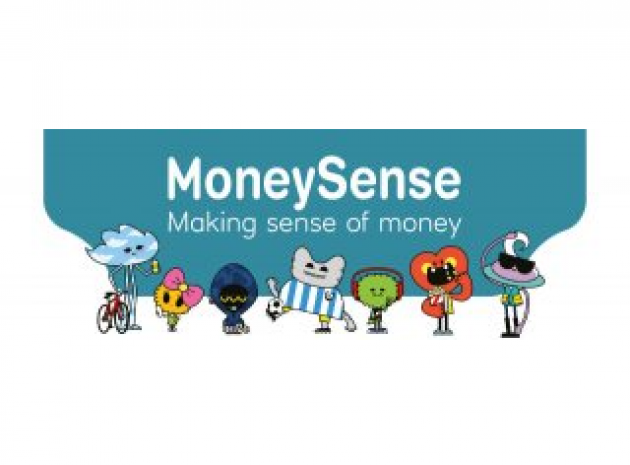Sponsored Investment Tips
ADVERTISEMENT
We live in an era of endless financial options—apps, tools, platforms, and advisors all promising to improve your financial health, build wealth, and protect your future. But as helpful as some of these services can be, others are dressed-up distractions, draining your wallet instead of growing it.
How do you know what’s real and what’s just smart-sounding nonsense? In this article, we dive deep into the world of modern finance and insurance to separate money sense from marketing spin. With honest reviews and practical insight, we help you make informed, smarter money decisions.
The Rise of Financial Tools: Convenience or Confusion?
Over the past decade, financial services have exploded across digital platforms. Budgeting apps, robo-advisors, online banks, and insurance aggregators now promise control at your fingertips.
While access and convenience have improved, the reality isn’t always so pretty. Many tools are loaded with hidden fees, shallow features, or misleading “benefits” that don’t really help most users.
Let’s take a closer look at what works—and what doesn’t.
1. Budgeting Apps: Helpful or Habitual Gimmicks?
Apps like YNAB (You Need a Budget), Mint, and PocketGuard are popular for tracking expenses and setting financial goals. But do they work?
✅ Money Sense – Why They Work:
- Automation: These apps link directly to your bank accounts and categorize your spending.
- Goal Tracking: You can set monthly budgets or save toward specific goals (like vacations or emergency funds).
- Awareness: Simply seeing where your money goes can change behavior.
❌ Nonsense – Where They Fall Short:
- Many apps only track—they don’t actively help you change habits.
- Overwhelming dashboards or aggressive notifications can lead users to uninstall.
- Some apps share your data with advertisers or sell “premium” advice.
Bottom Line:
Budgeting apps are useful only if you use them consistently. If not, they’re just another icon on your phone.
2. Robo-Advisors: Efficient Investing or Passive Promises?
Platforms like Wealthfront, Betterment, and Fidelity Go offer algorithm-driven investment services, usually at a lower cost than traditional advisors.
✅ Money Sense – The Positives:
- Low Fees: Often under 0.30% per year.
- Diversification: Portfolios are balanced based on risk and goals.
- Hands-Off Simplicity: Perfect for beginners or people too busy for active investing.
❌ Nonsense – The Catch:
- Algorithms can’t factor in personal life events or changing goals.
- Some platforms upsell premium features you may not need.
- Limited personalization compared to a human advisor.
Bottom Line:
Robo-advisors are great for passive investing—but don’t rely on them for complex financial planning.
3. Credit Cards: Rewards or Regret?
Credit card companies pitch cashback, travel perks, and convenience. But are you really coming out ahead?
✅ Money Sense – The Advantages:
- Rewards: If you pay your balance monthly, cashback and points are essentially free money.
- Perks: Extended warranties, travel protection, and purchase insurance are genuine benefits.
- Credit Building: Responsible use boosts your credit score.
❌ Nonsense – The Risks:
- High Interest Rates (15–30%) make carrying a balance extremely costly.
- Annual Fees can outweigh rewards unless you’re a heavy spender.
- Complex Reward Structures are designed to confuse and encourage overspending.
Bottom Line:
Credit cards offer great value—but only if you’re disciplined enough to pay in full and avoid overspending.
4. Online Banks: Innovation or Imitation?
Online-only banks (also called neobanks) like Chime, Ally, and Varo are replacing traditional banks for many users.
✅ Money Sense – Why People Switch:
- High-Interest Savings: Some pay up to 5% APY.
- No Monthly Fees: No maintenance, minimum balance, or overdraft fees.
- Easy Access: Fast setup, mobile check deposit, and instant transfers.
❌ Nonsense – The Downsides:
- Limited Services: No in-person help, limited lending products.
- ATM Access: Fees for using out-of-network ATMs.
- No Legacy Relationships: If you need loans or business banking, traditional banks may still be better.
Bottom Line:
Online banks offer better returns and fewer fees—but make sure the lack of physical branches won’t be a problem for you.
5. Insurance Products: Coverage or Confusion?
Insurance—whether auto, home, health, or life—is necessary. But it’s also one of the most over-marketed and misunderstood industries.
✅ Money Sense – Smart Insurance Picks:
- Term Life Insurance: Affordable and perfect for protecting dependents.
- High-Deductible Health Plans (HDHP): Pairing these with an HSA can save you thousands if you’re healthy.
- Usage-Based Auto Insurance: Providers like Root and Metromile charge based on driving behavior.
❌ Nonsense – What to Watch Out For:
- Whole Life Insurance for Everyone: Often oversold with promises of “tax-free wealth” but rarely worth the cost for average earners.
- Redundant Add-ons: Roadside assistance, device protection, and identity theft coverage may already be included elsewhere.
- Loyalty Penalties: Insurers often raise rates over time unless you shop around.
Bottom Line:
Insurance is protection—not profit. Buy only what you need, and review your policies yearly.
6. Financial Advisors: Trusted Help or Expensive Advice?
Many people still rely on traditional financial advisors, but the model is shifting.
✅ Money Sense – The Right Kind of Help:
- Fee-Only Fiduciaries: Advisors who charge a flat rate and act in your best interest.
- Certified Financial Planners (CFPs): Well-trained professionals who guide you through life stages.
- Objective, Long-Term Planning: Retirement, college savings, debt reduction, etc.
❌ Nonsense – Watch Out For:
- Commission-Based Salespeople: Often pushing products that earn them more, not you.
- Opaque Pricing: Hidden fees or vague “management” charges.
- One-Size-Fits-All Plans: Real advice should be customized.
Bottom Line:
A good advisor is worth it—but only if you know exactly how they get paid and what value they deliver.
7. Subscription Finance Services: Valuable or Vague?
From investment newsletters to premium budget apps, many financial tools now run on subscriptions.
✅ Money Sense – When It’s Worth Paying:
- Expert Insight: For active traders or niche investors, premium reports or strategy tools can deliver real returns.
- Advanced Budgeting Tools: Apps like YNAB, if used regularly, can justify their annual fee.
- Professional Support: Some platforms offer human advisors or real-time chat included in the price.
❌ Nonsense – When You’re Wasting Money:
- Low Engagement: Paying for tools you don’t use.
- Generic Advice: Paying monthly for info you can find free online.
- Bundled Add-ons: Services you didn’t ask for and don’t need.
Bottom Line:
Only pay for financial services that add clear, measurable value to your life. Cancel what you don’t use.
Conclusion: Make Money Work for You, Not the Other Way Around
When it comes to personal finance, the difference between smart decisions and wasted money often comes down to clarity, intention, and effort. The financial world thrives on complexity—but your strategy doesn’t have to.
✅ What Works:
- Simplicity over complexity
- Transparency over flash
- Consistency over short-term hype
- Education over emotion
❌ What Doesn’t:
- Blind loyalty to providers
- Paying for what you don’t use
- Falling for “guarantees” in finance
- Confusing flashy perks with real value
Final Tip:
Before using any financial product, ask yourself:
Does this help me save, earn, or protect money in a way that fits my real life—not just the ad?
If the answer is yes, go for it. If not, skip the nonsense—and make smarter decisions that actually work.
Because when it comes to money, sense always beats style.

